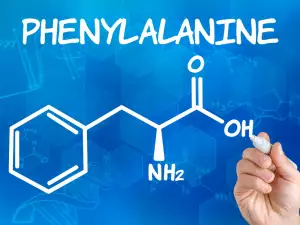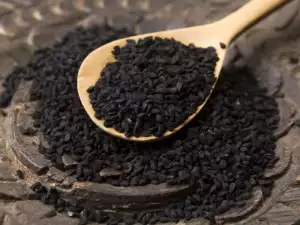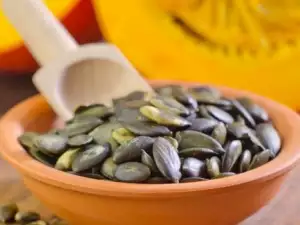Arginine is a valuable amino acid that the body can synthesize on its own. It exists in the body in free form and goes into the composition of a number of proteins.
Arginine is one of 20 most commonly found amino acids in nature. It was first isolated in 1886 by the Swiss chemist Ernst Schulze.
Benefits of Arginine
Arginine is needed to carry out a number of physiological processes. These processes include the secretion of hormones (especially growth hormone), building immune system defenses and removing toxic waste from the body. Arginine has good antioxidant properties, which are expressed in reducing oxidative stress.
Arginine is a precursor to nitrogen oxide (which in turn causes vasodilation of the blood cells), which is why it's very often used to improve sexual functions.
Arginine is needed by all age groups. Children and adolescents, athletes and people trying to lose weight, as well as the oldest among the elderly need it most of all. For children it's extremely important for the development and protection of the immune system.

People suffering from injuries can also benefit from arginine because the need for it increases when recovering from various bodily injuries.
Arginine has a vasodilating effect, thereby increasing blood flow to various parts of the body. It was a numerous range of benefits for people who exercise.
Arginine strengthens the immune system, allowing athletes to train harder, while at the same time avoiding the unpleasant consequences of overtraining.
Some studies claim that arginine lowers high blood pressure in women who suffer from preeclampsia. It can also be used in the treatment of arthritis. A good reason for this claim is that arginine is an important component in building collagen, which along with elastin makes up connective tissue.
Another claim is that arginine fights oncological diseases. This action is due to the enlargement of the thymus caused by the amino acid. The thymus produces additional quantities of specific cells that fight cancer cells.
Quite often, arginine is recommended as a treatment in the battle against liver dysfunction. It can also be used as a food supplement for fatty liver disease and liver cirrhosis.
There are many studies pointing to the beneficial effects of arginine on the body, keeping it young. This property is owed to the stimulating action of arginine on the growth hormone.

Arginine helps maintain vitality and efficiency longer. It's no accident that arginine is known as the amino acid of eternal youth.
Arginine enhances brain function, boosting activity and speed at which information is processed.
Arginine decreases body fat, preventing the absorption of such from food. Additionally it plays a role in breaking them down during exercise.
Sources of Arginine
The main natural sources of arginine are watermelons, peas, spinach, chicken and pork, whole grain foods, almost all types of nuts. The greatest amounts of arginine are found in peanuts.
Deficiency of Arginine
Symptoms evident during arginine deficiency include difficult healing wounds, constipation, muscle weakness, fatty deposits on the liver, hair loss, skin rashes, impaired glucose tolerance.
Dangers of Arginine
Persons suffering from heart problems and psychological illnesses must consult with a doctor before they begin taking arginine supplements. Nausea, diarrhea and faintness are seen in arginine overdose.
There hasn't been any universal dosage established. A small dose needs to be taken during the 1st week. With time, an optimal individual dose is usually found.















Comments